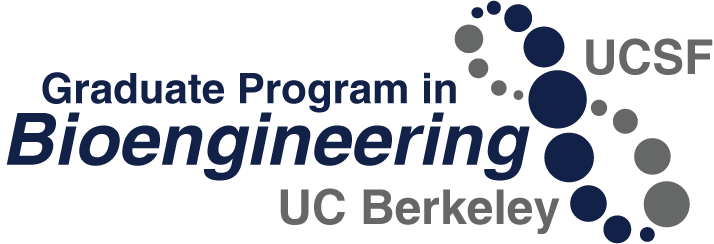At a time when debate rages about whether graduate school is smart choice—while some talk about tuition costs and others about job markets—Big BEAR at Berkeley is helping fellow students find their right choice.

Ask Ph.D. student Eric Jabart for the most important factor for graduate school success, and he won’t tell you hard work, or brilliant research, or a high-ranking school. It’s choosing the right lab, being proactive, and learning to cope with the ups and downs.
Eric, Wiktor Stopka, Amy Orsborn, and other UC Berkeley – UCSF Bioengineering graduate students founded Big BEAR (BioEngineering Advising Representatives) in 2011 to mentor undergraduates interested in research and graduate education, as well as graduate students interested in career exploration.
Working closely with the undergraduate Biomedical Engineering Society (BMES) at UC Berkeley, they run a series of panels on how to be successful in graduate school, interview at graduate programs, and how to pick a grad school lab. They also run a research recruitment forum to match undergraduates needing research experience with faculty and advanced students needing lab help, a mentorship program pairing undergraduates with graduate students, and a series of panels for graduate students focusing on the transition from school to working life.
Many undergraduates are unsure whether pursuing a graduate education is right for them, or if it is necessary for their career goals. Big BEAR describes the graduate school experience to students and empowers them to make informed decisions about their careers.
| “I think many undergraduates believe that being a successful undergraduate student translates directly to being a successful graduate student. However there are many new skills that are required in graduate school and getting a head-start on learning them can make a huge difference. On top of that, learning how to strategically pick a research group and mentor – a skill that we focus on – can make all the difference to a successful and happy graduate school career.” |
“I want to make sure students are well prepared to face the challenges of graduate school and that they start out on the right foot. The difference between a good start and a bad start in graduate education is a big one and can even be career-defining. “
Big BEAR’s prioritization of the student experience and supportive message may be especially important right now, as depression and anxiety are growing problems among college students of all levels.
“The weight of graduate school can be pretty heavy and sometimes overwhelming,” admitted Jabart. “Knowing that you are not alone in feeling that way, knowing (and using) resources that are at your disposal, remembering your goals in coming to graduate school, and knowing that it is a cycle of ups and downs, these things can keep you pushing through to that next breakthrough.”

Feedback on the program has been outstanding, with recent undergraduate alumni admitted to their top schools and receiving NSF fellowships, thanks to their mentor’s advice.
The Big BEAR team hopes to institutionalize some of their efforts to expand their offerings to students in other departments, and expand career mentoring for current graduate students.
“This is definitely something I wish was available when I was an undergrad,” said Jabart. “When I first started graduate school I felt a bit lost.” By 2011 he was ready to reach out with help for others, and sent an exploratory message to the graduate student email list. Within 15 minutes he was surprised by a number of responses from students with similar feelings.
“The only thing that surprised me about this work,” said Jabart, “was how much I enjoy the projects and how easy it is to spend time on them. Helping others be successful in their careers is gratifying in its own right.”
